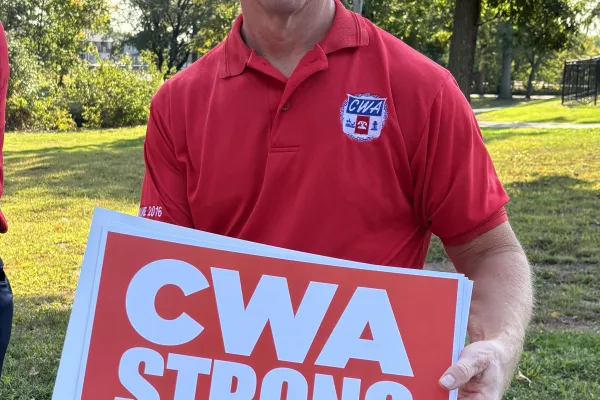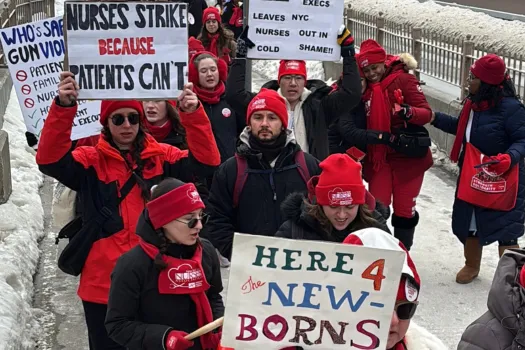Public Sector Job Losses Delay Economic Recovery, Gut Future Prospects
As the country waits for an economic recovery most Americans wait for an economic recovery, millions of Americans can't find jobs, and unemployment climbs closer to 10%--within earshot of the highest unemployment has been since the recession started.
Right-wing commentators have started talking about the "jobless recovery," as if an economic recovery is actually a recovery if millions of Americans who want to find work have no jobs. And they've taken to talking about "structural unemployment," as if workers are to blame for not being employed and a 10% unemployment rate for the next decade is somehow, magically, unavoidable.
In New Jersey, Governor Christie has assured he's done great work creating jobs and we no longer have reason to worry about the economic future. For what it's worth, Christie also said he did a pretty good job in helping remove snow from last week's storms, but that's another issue.
But the bigger story is the one you aren't hearing.
As parts of the private sector are showing tepid signs of growth, the modest gains are being nearly wiped out by layoffs in the public sector--and most of that has been focused on local government so far. In the past year in America, there were 261,000 job losses at the local government level. And as aid from the Federal government to prevent layoffs of teachers and police dries up, there's nothing to indicate a quick turnaround.
But think for a minute what that is doing to an economic recovery that is fragile at best and non-existent for most. For every job lost in the public sector, the private sector has to gain another job just to break even. Instead of private sector growth helping the economy, it's needed just to break even. And that comes at a time when 260,000 families across the country have less money to spend in the private markets than they did a year ago. Now, growth is needed in the private sector just to maintain the recession level we're in, and private businesses are losing a quarter of a million customers every year.
It doesn't stop there.
Take, for example, Camden, New Jersey. Camden was recently named the second-most dangerous city in the United States based on a survey of violent crime. Because of massive cuts to state aid, Camden has laid off half of its police force and a third of its fire fighters. Camden will completely eliminate its library services for the first time in 105 years.
If you're a business owner, are you coming to Camden now, or will you look elsewhere? When families look to buy a home, how many of them will no longer consider Camden? Because Governor Christie doesn't have the political desire to raise the money the state needs, he has just wiped out the prospect of Camden becoming a better place to live for at least a decade. On top of that, all of the resources taxpayers spent in training those public workers are leaving--other cities are more than happy to help themselves to those resources.
You would think that an economic strategy that says the way out of a recovery is to lay workers off, give away taxpayer resources for free, increase crime, decrease the quality of education, and eliminate public resources that make cities desirable to residents would be flatly rejected. But newly elected governors across America are looking to do exactly that.
The bottom line is that we're not just eliminating an economic recovery with draconian cuts to local government. In the case of Camden and countless other towns across America, we're making cuts to basic infrastructure services that will ruin local economies and harm those who live in our communities for generations--all because we refuse to entertain the notion that the wealthiest among us should pay their fair share in taxes.
Local 1180 Member Searches for Kidney Donor to Save Her Son
From the Desk of the Assistant to the Vice President of CWA District 1
10,000 New York State Nurses Association Members Win Strike in NYC; 5,000 More Press On, Entering Week Five


